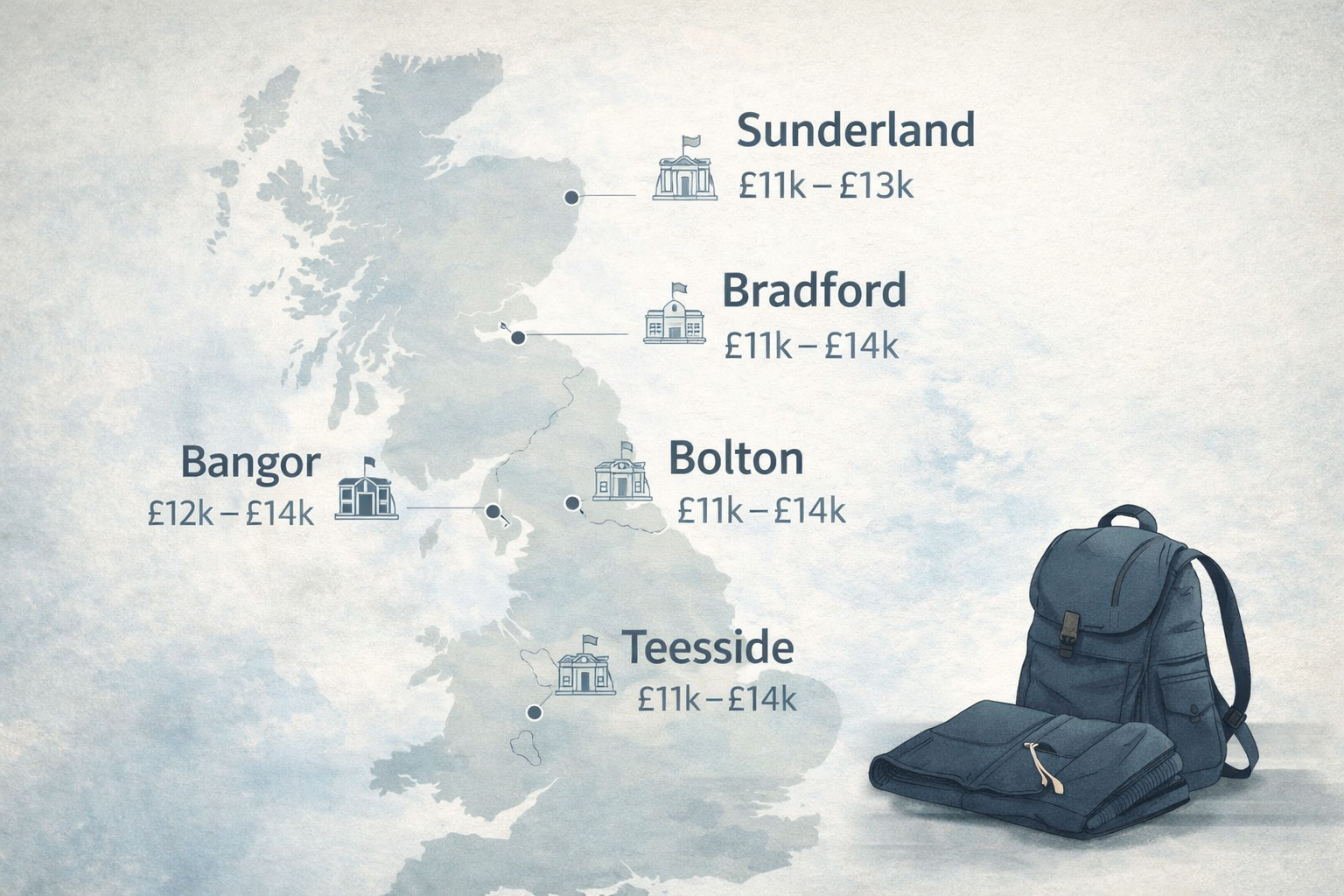Here’s the thing nobody tells you about management courses in the UK: they’re not just about learning to boss people around. I’ve spent years watching talented professionals get stuck because they couldn’t crack the code of what makes British business education so distinctly… British. And frankly, it’s frustrating watching brilliant minds waste time on programs that sound impressive but deliver nothing more than expensive certificates.
The reality? Management courses UK institutions offer represent some of the most rigorous, globally respected programs on the planet. But finding the right one requires more strategy than most people realize.
The Unspoken Truth About UK Management Education
Let me start with something that might surprise you: Oxford and Cambridge consistently dominate the UK business education landscape, but they’re not necessarily your best bet. (I know, shocking.) The magic happens when you understand that management courses UK universities deliver operate on three distinct tiers, each serving completely different career trajectories.

- The Elite Tier includes your Oxfords, Cambridges, and London Business Schools. These programs don’t just teach management—they manufacture global leaders. But here’s the catch: they’re looking for candidates who already demonstrate leadership potential, not those hoping to discover it.
- The Professional Tier encompasses schools like Manchester Business School, Edinburgh Business School, and Warwick. These institutions excel at taking working professionals and transforming them into strategic thinkers. Perfect if you’re climbing the corporate ladder but need that intellectual framework to reach the next level.
- The Specialized Tier focuses on niche areas—think Imperial College’s technology management programs or Bath’s sustainability-focused courses. These fly under the radar but often provide the most practical, immediately applicable skills.
When Traditional Rankings Lie (And What to Look For Instead)
Traditional university rankings for management courses UK programs can be misleading. League tables compare universities using standardized metrics, but they miss crucial factors that actually determine your success post-graduation.
I’ve seen Oxford MBA graduates struggle to find relevant positions while graduates from lesser-known programs secure dream roles. Why? Because they chose programs aligned with their specific career goals rather than chasing prestigious names.
Here’s what actually matters when evaluating management courses UK institutions provide:
- Connections with Industry More than Reputation: Certain management programs also have close relations with particular industries. When you specific fintech, there are London-based programs where there is no better access to startups and venture capital firms. Targeting healthcare management? Look for programs with NHS partnerships.
- Faculty Background Reveals Program Philosophy: Programs led by former CEOs emphasize practical leadership skills. Those dominated by academic researchers focus on theoretical frameworks. Neither approach is superior—they serve different learning styles and career goals.
- Alumni Network Geography Shapes Opportunities: A program might have impressive global rankings but weak alumni presence in your target market. This matters more than you think.
| Program Type | Best For | Typical Duration | Investment Range | Key Advantage |
|---|---|---|---|---|
| Full-time MBA | Career switchers | 12-24 months | £30,000-£120,000 | Complete transformation |
| Executive MBA | Senior professionals | 18-30 months | £60,000-£150,000 | Immediate application |
| Masters in Management | Recent graduates | 12 months | £20,000-£45,000 | Fast track to leadership |
| Part-time MBA | Working professionals | 24-36 months | £25,000-£70,000 | Career continuity |
| Online MBA | Geographic flexibility needed | 18-36 months | £15,000-£50,000 | Cost effectiveness |
The Application Game: What They Don’t Tell You
Applying to management courses UK programs isn’t just about meeting minimum requirements—it’s about understanding each institution’s unwritten preferences. And honestly, this is where most applicants mess up spectacularly.
The GMAT Obsession Is Overrated (Sort Of)
Most UK MBA programs require a GMAT score between 550-650, with prestigious schools like London Business School expecting scores closer to 700 or higher MBA in UK – Universities, Fees, Courses, Eligibility 2025 | IDP India. London Business School’s average GMAT score is around 700, with a typical class range of 600 to 800 Masters In Management (MIM) In UK In 2025 – UniAcco. However, many applicants spend months perfecting GMAT scores, missing the bigger picture. Some programs like Imperial College’s Management courses don’t require GMAT/GRE as mandatory, though it can enhance application strength MIS in UK 2025: Top Universities, Fees & Scope. I’ve seen candidates with mediocre test scores secure spots at top programs because they told compelling stories about real-world impact.
Personal Statements That Actually Work
Forget the generic “I want to be a leader” essays. Successful applicants write about specific problems they’ve solved and specific skills they need to develop. They connect their past experiences with future goals using concrete examples rather than abstract aspirations.
Interview Preparation Goes Beyond Standard Questions
Top programs use case study interviews, group exercises, and situational judgment tests. Preparing for standard MBA interview questions won’t cut it.
Financial Reality Check (Because Nobody Talks Numbers Honestly)
Let’s address the elephant in the room: money. The financial landscape for management courses UK has shifted significantly in 2025.
Annual tuition fees for MBA courses in the UK now range from £31,000 to £87,000 per year Top 10 universities for Business & Management Studies …, with elite programs commanding premium prices. London Business School’s 2025 MBA tuition is £119,950, while Manchester Business School charges £49,000 for both UK and international students MBBS Courses at University of Manchester: Fees, Eligibility & Requirements 2025.
Living expenses add £12,000 to £18,000 per year to your total costs Best 10 Business Schools and MBA Degrees in the UK for 2025 | Mastersportal. That’s significantly more than most people initially calculate, and these figures reflect current UK cost-of-living realities.
But here’s what’s interesting: post-MBA salaries in the UK range from £44,000 to £110,000 Top 116 Master in Management Programs in United Kingdom (UK) & Ireland 2025 | MiM Guide, creating significant variation in return on investment depending on your chosen specialization and target industry.

The Scholarship Opportunities That Most People Miss
Most UK business schools provide industry-specific scholarships which do not get many applications as they are not marketed much. Consulting firms, government agencies and technology companies tend to sponsor students in form of short term commitments.
The Part-Time Work Factor
International students have an opportunity to work 20 hours a week during the studies, and it may cover part of the living expenses. Nevertheless, it should be noted that this would need a lot of time management and it may affect academic performance.
Specialized Programs That Deserve More Attention
While everyone fixates on general management courses UK business schools promote, some of the most valuable opportunities exist in specialized areas that most applicants overlook.
- Digital Transformation Management: Programs focusing on digital business transformation are experiencing explosive demand. Companies desperately need leaders who understand both technology and business strategy.
- Sustainable Business Management: Environmental, social, and governance (ESG) concerns are reshaping corporate priorities. Management programs with sustainability focuses prepare leaders for this new reality.
- Healthcare Management: The NHS and private healthcare sectors need managers who understand both healthcare delivery and business operations. These programs often guarantee job placement.
The Application Timeline That Actually Works
Most guides provide generic timelines that don’t account for UK-specific requirements or optimal application strategies. Here’s the reality-tested approach for management courses UK applications:
- 18 Months Before Intended Start: Begin researching programs and building relationships with alumni. This seems early, but competitive programs value demonstrated long-term interest.
- 12 Months Before: Complete standardized tests and begin application essays. UK programs often have earlier deadlines than US counterparts.
- 9 Months Before: Submit applications for competitive programs. Many use rolling admissions, making early submission advantageous.
- 6 Months Before: Apply to secondary choice programs and finalize funding arrangements.
This is precisely where services like GCRD Hub become invaluable. They are based in 107-111 Fleet Street in London and deal with tailored academic placement as well as the complete support in admissions. As a person who has consulted with several applicants, I have noted that there is a high success rate when professional guidance is involved especially with international students whose admission requirements are complicated even in the UK.
The Hidden Curriculum: What You Actually Learn
Here’s what surprised me most about UK management education: the real learning happens outside formal coursework. British business schools excel at creating environments where students learn from each other as much as from faculty.

- The Pub Test: Many important discussions happen in informal settings. UK business culture values relationship-building through casual interaction, and programs deliberately foster these opportunities.
- Case Study Methodologies: British programs emphasize European business cases alongside American ones, providing broader global perspectives. This matters more than you might expect for post-graduation opportunities.
- Consulting Project Requirements: Most programs require real consulting projects with actual companies. These experiences often lead directly to job offers and provide practical experience that sets UK graduates apart.

| Program Component | Typical Weight | Actual Career Impact |
|---|---|---|
| Core Coursework | 40% | Foundation knowledge |
| Elective Specialization | 25% | Industry positioning |
| Capstone/Dissertation | 15% | Research skills demonstration |
| Consulting Projects | 10% | Highest job placement correlation |
| International Exchange | 10% | Global network expansion |
Post-Graduation Reality: What Employers Actually Want
Having interviewed management program graduates and spoken with recruiters, there’s a significant gap between what management courses UK programs emphasize and what employers prioritize.
- Employers Value Implementation Over Theory: Graduates who can demonstrate how they’ve applied management concepts in real situations consistently outperform those who can only discuss theoretical frameworks.
- Cultural Adaptability Matters More Than Technical Skills: UK business culture values consensus-building and diplomatic communication. Programs that develop these soft skills produce more successful graduates.
- Industry-Specific Knowledge Trumps General Management: Specialized knowledge in healthcare, financial services, or technology often matters more than broad management competence.

The Admission Support Landscape
Applying to management programs in the UK may be an intimidating experience, especially when an international student does not have access to British academic culture. To deal with these difficulties, support services have developed professionally and provide all services such as application strategy, interview preparation.
There are those organizations such as GCRD Hub (+44 7756 428968) which also gives a complete support scholarship identification, financial aid assistance and pre-departure orientation. Their end-to-end mentality appreciates that well-thought program choice and the right program set-up are the keys to a successful program completion.
When Professional Help Makes Sense
- You’re applying from outside the UK and unfamiliar with application conventions
- You’re targeting highly competitive programs with acceptance rates below 20%
- You need scholarship funding to make programs financially viable
- You’re career-switching and need help positioning your background effectively
Making Your Decision: The Final Framework
The decision however to select the best of the available management courses UK comes down to selecting program features according to your own personal career objectives and requirements.
Pose to yourself the following questions that are non-negotiable:
- What position will you like to have after school? There are those programs with big networks in certain geographical areas or industries.
- What’s your learning style? Case study-heavy programs suit different personalities than lecture-based approaches.
- How much career risk can you tolerate? Some programs excel at incremental career advancement while others facilitate dramatic career pivots.
- What’s your actual budget including opportunity costs? Be brutally honest about total investment versus expected returns.
The most popular management courses offered at the UK institutions are certainly not the best management courses, but the most suitable ones, which will offer you the necessary resources to accomplish them.
Questions Often Asked (FAQ)
What is the duration of management courses in UK?
The duration of most full time programs in UK is 12-24 months with MiM programs averagely lasting 12 months and the MBA program averagely lasting 12-24 months depending upon the institution.
Which are the entry requirements into top management programs?
They vary and normally require a bachelor degree, 2-5 years working experience (depending on the program category), a good score in GMAT/GRE (550-700+ in top programs), good score in English (IELTS/TOEFL) and a good personal statement with references.
Are international students allowed to work during their period of study in the UK to learn management courses?
Yes, generally international students are allowed to work part-time up to 20 hours in a week during term time and full-time on holidays which will partly pay the living expenses.
How much is the mean salary when one finishes a management course in the UK?
Entry-level salaries are widely different according to the industry and program with the highest entry-level starting salaries at around 110,000, and university with the largest specialization having entry-level salaries starting at around 44,000.
Do you have scholarships to international students?
Yes, a number of the UK business schools have merit- scholarship, industry scholarships and the UK government provides scholarship to international students studying management subjects.





